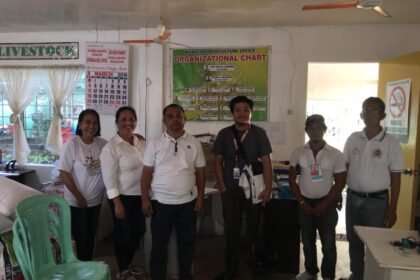Fieldwork is an essential component of market research, involving the collection of primary data directly from the target audience or market. It encompasses various methods such as surveys, interviews, observations, and focus groups conducted in real-world settings.
Definition of Fieldwork
Fieldwork refers to the process of gathering firsthand information or data directly from the source, typically involving interactions with individuals or groups within a specific environment or context relevant to the research objectives. In market research, fieldwork often involves conducting surveys, interviews, observations, or focus groups to gather insights from consumers, stakeholders, or target audiences.
History of Fieldwork
The history of fieldwork in market research traces back to the early 20th century when companies started realizing the importance of understanding consumer behavior and preferences. Initially, fieldwork was primarily conducted through face-to-face interviews and observational studies. With advancements in technology, methods such as online surveys, mobile data collection, and social media monitoring have become integral parts of modern fieldwork practices.
Is the term fieldwork in market research known by any other names?
While “fieldwork” is the commonly used term in market research, it may also be referred to as “field research,” “on-site research,” or “in-person research.” These terms essentially denote the same process of gathering primary data directly from the field or real-world settings.
Fieldwork Use Cases
Fieldwork in market research is employed for various purposes, including:
1. Understanding consumer preferences, behavior, and buying patterns.
2. Evaluating brand perception and customer satisfaction.
3. Testing new product concepts or prototypes.
4. Gathering feedback on advertising campaigns or marketing strategies.
5. Conducting competitor analysis and market segmentation.
6. Exploring market trends and emerging opportunities.
Trends in Fieldwork in Market Research
Some notable trends shaping fieldwork in market research include:
1. Digital Transformation: Embracing digital tools and platforms for data collection, analysis, and reporting.
2. Mobile Research: Leveraging mobile devices for surveys, geo-tracking, and real-time data collection.
3. Automation and AI: Integrating automation and artificial intelligence for faster data processing and actionable insights.
4. Remote Fieldwork: Conducting field research remotely through virtual interviews, online communities, and social media monitoring.
5. Ethnographic Studies: Employing ethnographic methods for in-depth understanding of consumer behavior in natural settings.
6. Data Privacy and Ethics: Prioritizing data privacy, transparency, and ethical considerations in fieldwork practices.
Challenges in Fieldwork in Market Research
Despite its benefits, fieldwork in market research poses several challenges, including:
1. Sampling Issues: Ensuring representative and unbiased samples for accurate insights.
2. Data Quality: Addressing issues such as response bias, incomplete responses, and data errors.
3. Cost and Resource Management: Optimizing resources and budgets for effective fieldwork.
4. Time Constraints: Meeting deadlines while conducting thorough and comprehensive research.
5. Cultural Sensitivity: Respecting cultural differences and nuances in diverse markets or regions.
6. Technology Integration: Overcoming technical challenges and ensuring seamless data collection and analysis.
Conducting Fieldwork in Rural Versus Urban Areas
Fieldwork in rural and urban areas requires different approaches due to distinct demographics, lifestyles, and access to technology. In rural areas, face-to-face interviews, community engagement, and offline surveys may be more effective, while urban areas may benefit from online surveys, mobile apps, and digital platforms.
Conducting Fieldwork in Multiple Countries
When conducting fieldwork across multiple countries, researchers must consider cultural differences, language barriers, legal regulations, and logistical challenges. Collaboration with local partners, translators, and market experts can facilitate smooth data collection and ensure cultural sensitivity.
Key Considerations for Brands Conducting Fieldwork Research
Brands engaging in fieldwork research should consider the following key factors:
1. Clear Objectives: Define specific research goals and outcomes to guide the fieldwork process.
2. Target Audience: Identify and segment the target audience based on demographics, behavior, and preferences.
3. Method Selection: Choose appropriate data collection methods and techniques aligned with the research objectives.
4. Ethical Standards: Adhere to ethical guidelines, data privacy regulations, and informed consent protocols.
5. Data Analysis: Develop robust analysis frameworks to derive actionable insights and recommendations.
6. Collaboration: Collaborate with experienced market research agencies or consultants for expertise and support.
The Advantage of Partnering with a Market Research Company
Partnering with a reputable market research company offers several advantages, including:
1. Expertise and Experience: Access to skilled researchers, analysts, and fieldwork specialists.
2. Industry Insights: Benefit from industry knowledge, trends, and best practices.
3. Quality Assurance: Ensure high-quality data collection, analysis, and reporting.
4. Scalability: Scale fieldwork operations according to project scope, timeline, and budget.
5. Innovation: Leverage advanced tools, technologies, and methodologies for effective research.
6. Strategic Guidance: Receive strategic recommendations and actionable insights to drive business decisions.
Fieldwork remains a fundamental aspect of market research, enabling organizations to gain valuable insights, understand market dynamics, and make informed decisions. By embracing technological advancements, addressing challenges, and adopting best practices, brands can harness the power of fieldwork to stay competitive and responsive to evolving consumer needs and preferences.




5 Comments
John Doe
August 27, 2014 at 6:18 pmVivamus eu felis tempor, venenatis nisl id, elementum leo. Quisque non sapien massa. In hac habitasse plateast. Pellentesque mollis odio quis mi euismod, non posuere lorem cursus.
David
December 8, 2015 at 6:43 pmSuspendisse eget malesuada justo, non suscipit tortor. Donec tincidunt vestibulum leo. Ut a iaculis nisi. Morbi ut dui eu nisi aliquam lobortis.
Lala
November 5, 2015 at 1:01 pmSed rhoncus porttitor augue, ut volutpat tortor. Vestibulum vel diam quis mauris sodales euismod.enatis enim felis, sed efficitur ipsum lobortis sed. Aenean dignissim varius elit, vitae quam.
Silvia
December 8, 2015 at 6:44 pmFugit sea vivendo pericula. Vim eu suas sententiae, in nam euismod periculis, omnesque id nam.
catrin echegaray bloise
March 23, 2024 at 11:49 amcatrin echegaray bloise